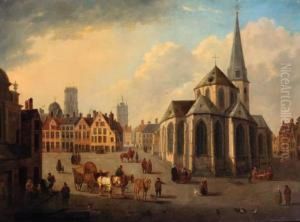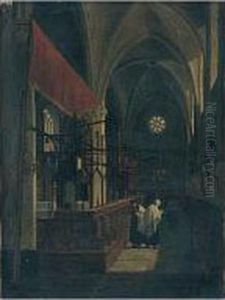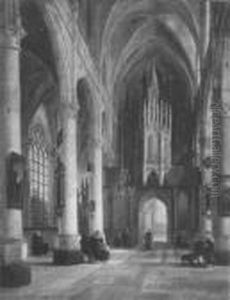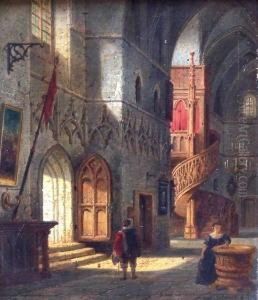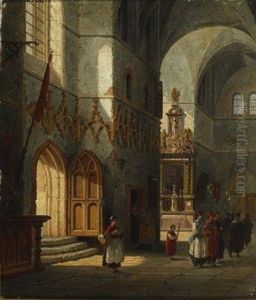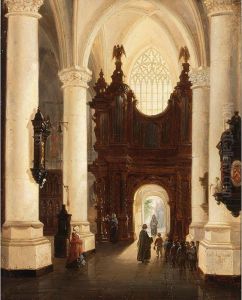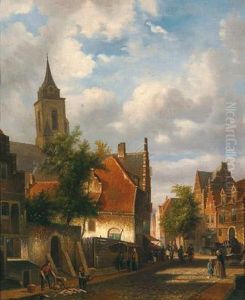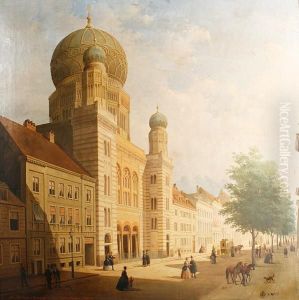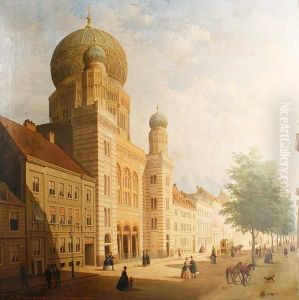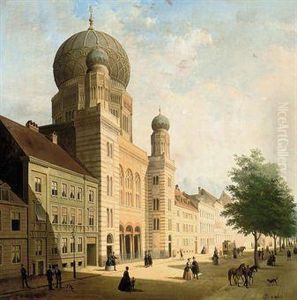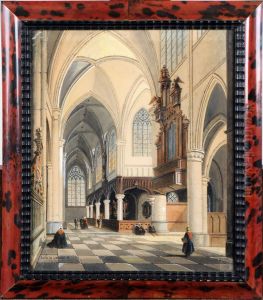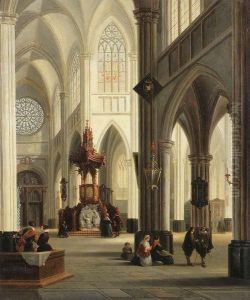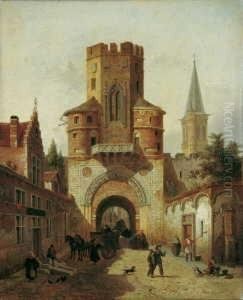Emile Pierre J. De Cauwer Paintings
Emile Pierre J. De Cauwer was a Belgian painter born on October 4, 1812, in Antwerp, Belgium. He was part of the Romantic movement, which was characterized by its emphasis on emotion and individualism as well as glorification of all the past and nature. De Cauwer's works often reflected these themes, with a particular focus on historical and genre scenes.
During his formative years, De Cauwer was greatly influenced by the rich artistic tradition of his hometown, Antwerp, a city known for its vibrant art scene and as the home of Peter Paul Rubens. He studied at the Royal Academy of Fine Arts in Antwerp, where he was influenced by the works of Flemish and Dutch masters. His education and early exposure to the works of these masters helped shape his artistic style, which was noted for its detail, use of color, and historical accuracy.
De Cauwer's career spanned much of the 19th century, a period that saw significant changes in the art world. Despite the shifts in artistic trends during his lifetime, from Romanticism to Realism and then to Impressionism, De Cauwer remained true to his Romantic roots. His works often depicted dramatic scenes from history or literature, imbued with a sense of emotion and storytelling that captivated viewers.
He exhibited his works in various salons and exhibitions, gaining recognition and accolades for his contributions to Belgian art. De Cauwer's paintings are characterized by their meticulous attention to detail, vibrant colors, and the ability to convey deep emotional resonance through historical and mythological themes.
Despite his success, Emile Pierre J. De Cauwer remained relatively unknown outside of Belgium, overshadowed perhaps by his contemporaries who embraced more modern movements. However, within Belgium and among aficionados of Romantic art, his work is celebrated for its technical skill and emotional depth.
Emile Pierre J. De Cauwer passed away on April 15, 1898, in Antwerp. Today, his works can be found in several Belgian museums and are appreciated by those who have a keen interest in the Romantic period of the 19th century. De Cauwer's legacy is that of a skilled painter who captured the spirit of his time, preserving it for future generations to admire.
